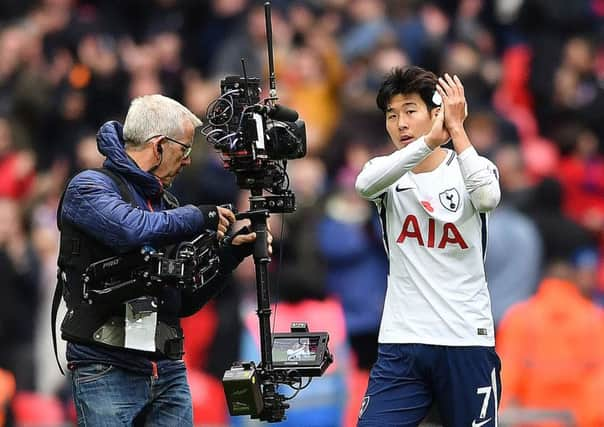Amazon reshapes broadcasting landscape with Premier League deal


Amazon’s Prime Video service has bought the rights for two rounds of live matches each season in England’s top flight in a three-year deal from season 2019-20, representing 20 games each season during a midweek programme in early December and another around Christmas.
It was one of two packages of domestic rights that remained unsold from an auction this year. The rights to show another two rounds of midweek games were purchased by BT Sport for £90 million, giving it 52 live matches from 2019 to 2022. Sky, whose biggest shareholder is Rupert Murdochs’s 21st Century Fox, has 128 games each season in the same cycle.
Advertisement
Hide AdIf Amazon paid a similar amount as BT for 20 games, the league would generate £4.6 billion from the sale of 200 live games in Britain, compared with £5.14bn for 168 matches from 2016-19. After the past two domestic deals both produced 70 per cent jumps in the value of rights, the league is now experiencing a downturn and looking overseas to generate growth.
Leading clubs also used the Premier League’s annual meeting to demand a greater share of the international revenue stream, breaking long-standing resistance to a change in the formula.
“By coming together and agreeing this change, the clubs have provided a platform for the future success of the league for many years ahead,” said Premier League executive chairman Richard Scudamore, shortly before making the surprise announcement that he would be standing down at the end of this year.
Any growth beyond the value of the 2016-19 foreign deals with be distributed based on where a team finishes – reflecting the meritocratic allocation of domestic television income. An additional clause means the maximum a club can receive is 1.8 times the amount collected by the lowest-earning club from the league when central revenue is distributed. Last season’s top-earner with £149.8m was second-placed Manchester United, who took 1.6 times more than bottom side West Bromwich Albion.
Half of domestic television revenue is split depending on a team’s final position and live appearances on British channels. The remaining half is shared equally, giving each team £34.8m last year. They each collected £40.8m last season when the overseas cash was divided equally.
“When the Premier League was formed in 1992 nobody could have envisaged the scale of international growth in the competition which exists now,” Scudamore said. “Back then the clubs put in place a revenue sharing system that was right for the time and has served the league well, enabling them to invest and improve in all areas.
Advertisement
Hide Ad“This new agreement will continue that trend with a subtle change that further incentivises on-pitch achievement and maintains the Premier League’s position as the most equitable in Europe in terms of sharing central revenues.”